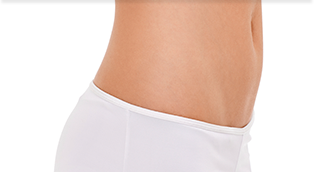Posted: July 27, 2016
Cholesterol is primarily stored in special fat cells called adipocytes. These fat cells comprise adipose tissue, a connective tissue that also serves to insulate the body and store necessary energy. HDL, sometimes called “good cholesterol,” can be increased through exercise, not smoking, eating a healthy diet high in colorful fruits and vegetables, avoiding sugar and trans fats, and limiting meat consumption. LDL, sometimes called “bad cholesterol,” is found primarily in fatty, processed foods and red or fried meat, and increases risks for a range of serious and life threatening diseases.
Liposuction targets subcutaneous fat – the layer of fatty tissue just below the skin – but does not remove visceral fat, bone marrow, or muscle tissue where adipose tissue is largely present. As such, liposuction will not lower your cholesterol levels in any significant way. However, the steps necessary to maintain and enhance your liposuction results often will.
 Once Greenwood plastic surgeon Dr. Ted Vaughn has sculpted your body with liposuction, the removed fat cannot come back. However, new fat can accumulate should you choose to engage in a sedentary and unhealthy lifestyle. Those very things that can increase LDL cholesterol, such as inactivity and a diet high in sugary foods and trans or hydrogenated fats, will promote fat accumulation in your treatment areas. Choosing a healthy lifestyle will have the opposite effect.
Once Greenwood plastic surgeon Dr. Ted Vaughn has sculpted your body with liposuction, the removed fat cannot come back. However, new fat can accumulate should you choose to engage in a sedentary and unhealthy lifestyle. Those very things that can increase LDL cholesterol, such as inactivity and a diet high in sugary foods and trans or hydrogenated fats, will promote fat accumulation in your treatment areas. Choosing a healthy lifestyle will have the opposite effect.
To maintain liposuction results, aim to get at least 60 minutes of exercise three times a week, eat a healthy and balanced diet, and take steps to care for your body. In the end, not only will these steps help you maintain your liposuction results, they may even help you control and maintain healthy cholesterol levels.
If you have questions about liposuction, please contact Piedmont Plastic Surgery online or by calling 864-223-0505 to schedule a consultation today. Dr. Vaughn welcomes liposuction patients from Greenwood, Columbia, and all surrounding areas of South Carolina.








